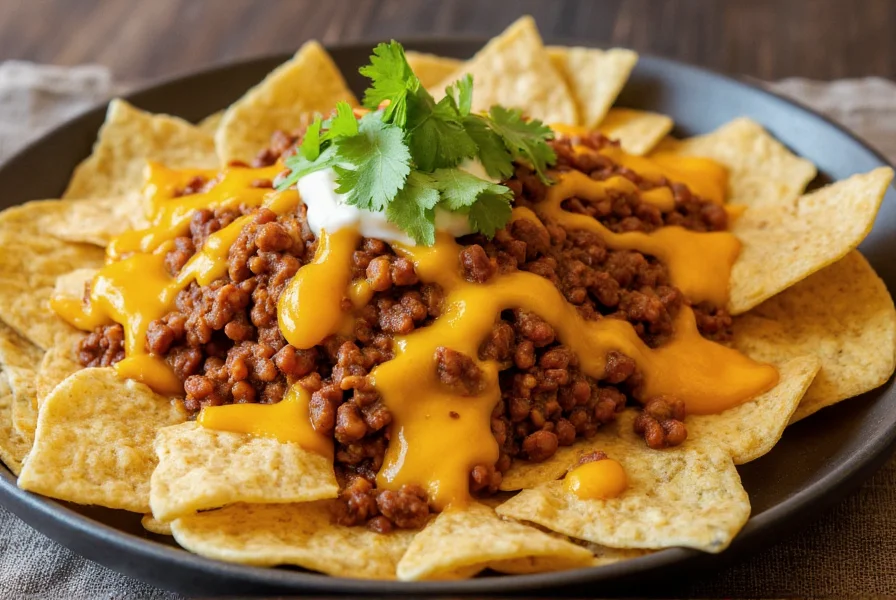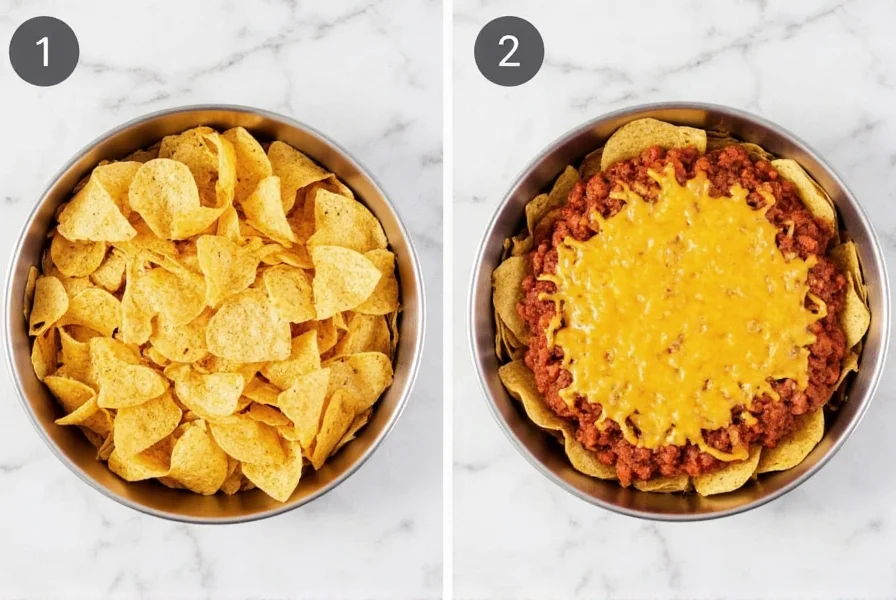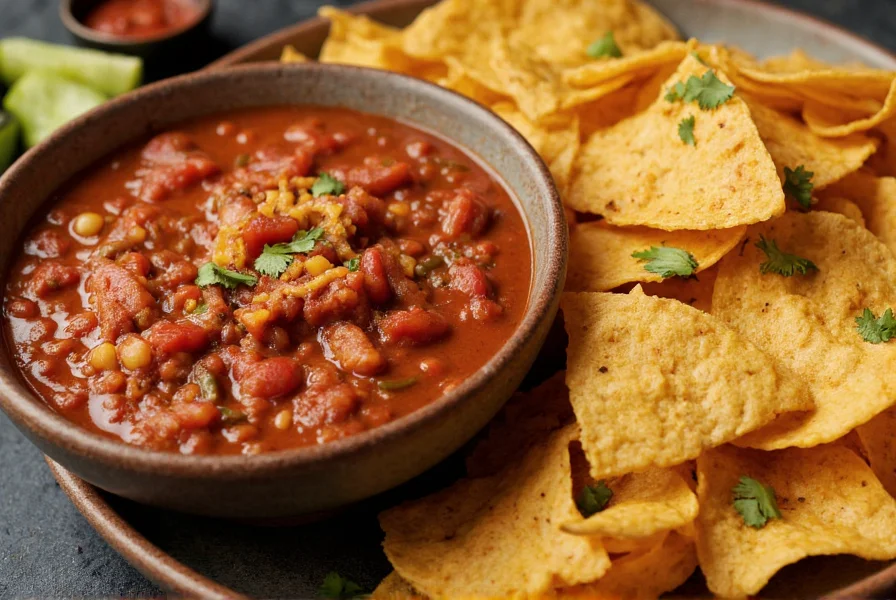When it comes to creating the perfect chili nachos experience, understanding the relationship between these two beloved foods is essential. While both stand strong on their own, combining them requires careful consideration of texture, temperature, and flavor balance to avoid the common pitfall of soggy chips and bland results.
The Science Behind Perfect Chili-Nachos Pairing
Successful chili nachos depend on understanding food chemistry. The critical factor is moisture control—chili that's too thin will seep into chips within minutes, destroying their structural integrity. Professional chefs recommend a chili with a viscosity similar to tomato paste, achieved through proper reduction during cooking. This thickness allows the chili to sit on top of chips rather than soaking into them.
Temperature management is equally crucial. Serving chili at 165°F (74°C) ensures food safety while preventing premature chip softening. Many restaurants make the mistake of using piping hot chili that's just come off the stove, which accelerates sogginess. The ideal approach is to let chili rest for 15 minutes after cooking, allowing flavors to meld while reducing the immediate heat transfer to chips.

Traditional vs. Modern Chili Approaches for Nachos
While purists argue that authentic Texas-style chili con carne (made with meat, chilies, and spices—no beans) creates the most balanced nacho topping, modern variations have gained popularity for specific dietary needs:
| Chili Type | Best For | Texture Rating | Flavor Compatibility |
|---|---|---|---|
| Texas-Style (no beans) | Traditional nachos | ★★★★★ | ★★★★☆ |
| Cincinnati-Style (spicy-sweet) | Gourmet nachos | ★★★☆☆ | ★★★★★ |
| White Bean Chili | Vegetarian nachos | ★★★☆☆ | ★★★☆☆ |
| Quick 30-Minute Chili | Weeknight nachos | ★★☆☆☆ | ★★★☆☆ |
Step-by-Step Guide to Perfect Chili for Nachos
Creating the ideal chili specifically for nachos requires slight modifications from standard chili recipes. Follow these professional techniques:
- Meat selection: Use 80% lean ground beef or a beef-bison blend for optimal fat content that enhances flavor without excessive grease
- Thickening process: Simmer uncovered for 90-120 minutes, stirring occasionally, until liquid reduces by 40%
- Texture adjustment: If chili remains too thin, create a slurry with 1 tablespoon cornstarch and 2 tablespoons cold water, then stir in gradually
- Final consistency check: Run a spoon through the chili—it should leave a clear path that takes 10-15 seconds to fill back in
Assembly Techniques That Prevent Sogginess
How you build your chili nachos matters as much as the chili itself. Professional kitchens use these methods to maintain crispness:
- Chip preparation: Briefly warm chips in a 350°F (175°C) oven for 3-4 minutes before assembly to drive out moisture
- Strategic layering: Place 30% of chips on serving platter, then 50% of cheese, followed by 100% of chili, remaining cheese, and finally remaining chips
- Broiler technique: Melt cheese under broiler for 60-90 seconds—any longer and chips begin to soften
- Immediate serving: Assemble and serve within 2 minutes of cooking to preserve chip integrity

Common Mistakes That Ruin Chili Nachos
Avoid these frequent errors that turn promising nachos into disappointment:
- Using pre-made canned chili: Most commercial varieties contain excessive liquid and preservatives that compromise texture
- Skipping the chip warming step: Cold chips absorb moisture faster than room-temperature ones
- Overloading with wet ingredients: Adding salsa or sour cream before serving accelerates sogginess
- Incorrect cheese selection: Pre-shredded cheese contains anti-caking agents that prevent proper melting
Creative Variations Worth Trying
While traditional beef chili nachos remain popular, these innovative approaches have gained traction among food enthusiasts:
- Breakfast chili nachos: Use a spicy pork chorizo chili with fried eggs and avocado
- Seafood chili nachos: Substitute traditional meat with shrimp and white beans in a chipotle-based chili
- Korean-Mexican fusion: Top with gochujang-infused chili and kimchi for umami depth
- Game day supreme: Layer chili, queso, jalapeños, and crumbled bacon for maximum indulgence
Remember that the key to exceptional chili nachos lies in respecting the fundamental principles of texture management and flavor balance. Whether you're preparing a quick weeknight snack or entertaining guests, these techniques ensure your chili nachos maintain that perfect crunch-to-soft ratio that makes each bite satisfying.











 浙公网安备
33010002000092号
浙公网安备
33010002000092号 浙B2-20120091-4
浙B2-20120091-4